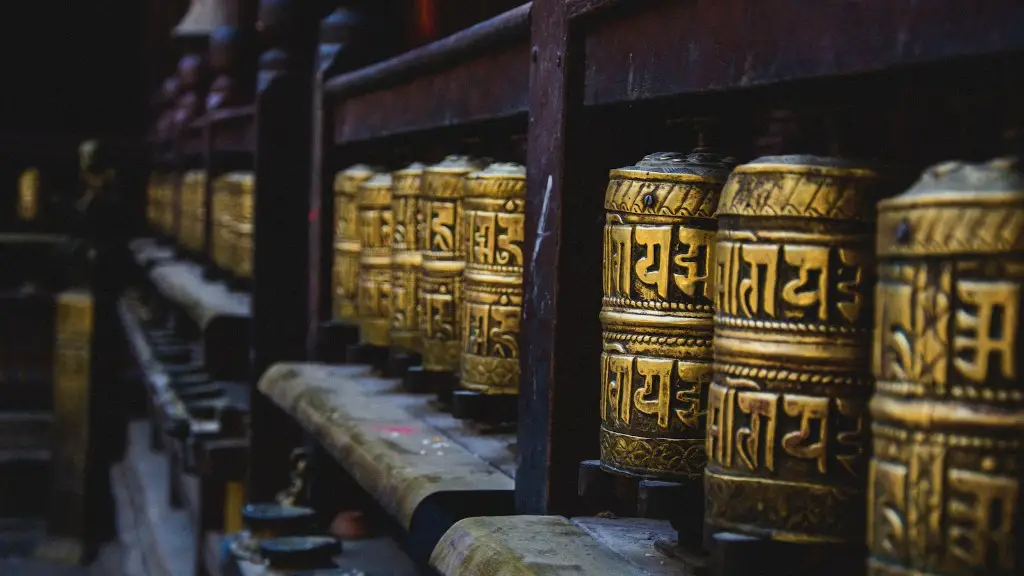Is Christianity A Form Of Catholicism?
Christianity and Catholicism are closely related: both are forms of Christianity, yet they have some differences, as well. Christianity refers to a collection of religious denominations, while Catholicism is a specific faith and denomination in itself. So while all Catholics are Christian, not all Christians are Catholic.
Catholics believe in the teachings of the Bible and hold that the Pope has the authority to interpret the Gospel for the faithful, whereas Christians may not necessarily adhere to all the same beliefs or interpretations.
Catholicism also tends to be more liturgical and ritualistic than other forms of Christianity. Catholics have their own calendar of liturgical observances and holidays, as well as set times for worship and practices such as confession, penance and communion.
One of the primary distinctions between Christianity and Catholicism is the way that salvation is viewed. Catholics believe that salvation comes from following the teachings of the Church, whereas Christianity holds that it is by faith in Christ that one is saved.
Catholics also generally accept all of the doctrines of the Roman Catholic Church, including the divinity of Jesus, the concept of Original Sin, the Immaculate Conception, the role of the Sacraments, and the Papacy, among others. Most other express Christianity is non-Roman, non-creedal, meaning they accept some of these doctrines but not necessarily all of them.
In terms of church hierarchy and organization, the Catholic Church is much more structured and centralized. It has a clear hierarchy in which the Pope serves as the ultimate leader in matters of religion and is seen as the “Vicar of Christ” on Earth. By contrast, many forms of Christianity are less hierarchical and often decentralized.
The Catholic Church also places a great emphasis on Mary, the mother of Jesus, while other forms of Christianity generally do not. For example, Catholics include Mary in their liturgy and may thank her for her intercession with God, while other forms of Christianity may not recognize her as anything more than a historical figure.
Doctrine
The Catholic Church has a robust set of doctrines and teachings regarding salvation, sin, morality, and the afterlife. It has a strict doctrinal code of conduct that Catholics must adhere to, which includes the Ten Commandments, the Sacraments, and other teachings set forth in the Bible.
Catholics also ascribe to the idea of “purgatory”, where souls must go after death to atone for their sins. This is something that other forms of Christianity generally reject, instead believing that salvation is a free gift from God that should not be earned or “worked” for.
In terms of the afterlife, Catholics believe that those who live a life of virtue and perform good works will be rewarded in heaven, while those who commit serious sins may be punished in hell. By contrast, other forms of Christianity may reject the notion of eternal damnation, believing instead that all sinners will be forgiven and allowed into heaven.
Worship Style
The manner in which Catholicism worships is also different from other forms of Christianity. Mass is a central part of Catholic life, and is celebrated in a specific liturgical way, with a specific set of ritual and prayers that are often chanted or sung during the service. Catholics may also venerate images or relics in the home or at Church.
By contrast, many types of Christianity are much less liturgical and generally include more individualized worship practices. Prayer may be an important part of the service in these denominations, but the overall focus is usually on the proclamation of Scripture and the celebration of Communion.
Other Practices
Catholicism has many other practices, traditions and beliefs that are not necessarily shared by other forms of Christianity. These include the veneration of saints; the use of relics, statues and images; monasticism; the sacrament of confession; and pilgrimages to holy sites.
In addition, Catholicism has a very hierarchical structure and a great deal of organization and bureaucracy. Many churches in other denominations are much less structured and tend to be much more decentralized in nature.
Finally, Catholicism tends to emphasize spiritual discipline and asceticism, where believers practice certain forms of Christian living in order to draw closer to God. Some forms of Christianity may not adhere to these practices as closely.
Education and Formation
The Catholic Church places a great emphasis on education and formation of its faithful. It offers a number of academies and schools that specialize in teaching Catholic doctrine and theology, as well as schools of philosophy and other higher learning institutions.
In addition, the Church also has a well-developed catechism that teaches its faithful about the doctrines and beliefs of the faith, as well as other important lessons about morality, ethics, and living a life according to the beliefs of the faith. Other forms of Christianity may not have such a prominent, wide-spread system of education and formation.
Sacraments
Catholics practice seven sacraments that serve to bestow grace or sanctify believers and are seen as signs of God’s grace and love. These sacraments are the Eucharist, Confession, Confirmation, Baptism, Holy Orders, Anointing of the Sick and Matrimony.
The Catholic Church also holds that these sacraments are necessary for salvation. Other forms of Christianity may not necessarily adhere to all of these sacraments, and may instead believe that salvation comes from faith in Christ alone.
Apostolic Succession
Finally, Catholicism holds to the belief of apostolic succession, which states that the Pope and leaders of the Roman Catholic Church are the direct successors of St. Peter, the original leader of the Christian Church. Other forms of Christianity may view apostolic succession differently, or may not recognize it at all.
In conclusion, Christianity and Catholicism are closely related, and while all Catholics are Christian, not all Christians are Catholic. Catholicism has a distinct set of beliefs that sets it apart from other Christian denominations, including specific doctrines, hierarchies, rituals and sacraments. Additionally, the Catholic Church places a great emphasis on education and formation of its faithful, and may include practices that other forms of Christianity do not necessarily recognize.

